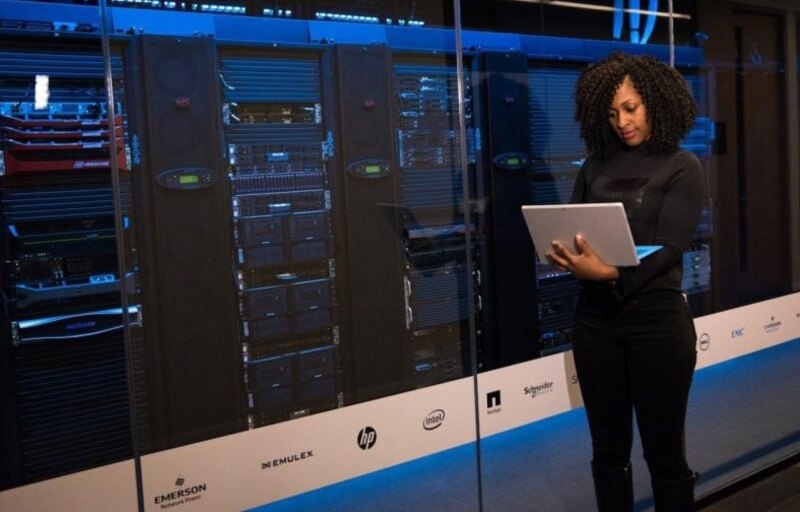Tech That Never Sleeps: 24/7 Platforms for a 24/7 World
The modern world doesn’t sleep anymore. You can book a ride, play games online, and transfer funds at any time of the day. This has been made possible by tech-infused platforms that enable instant access with 24/7 availability.
But what’s fueling these platforms, and what’s their impact on our world? Below, we cover the rise of 24/7 platforms, with examples across various industries, and illustrate their impacts.
The Rise of Digital 24/7 Platforms
Just two decades ago, before smartphones and wide internet access, most services operated on fixed hours. Today, the world has embraced a 24/7 economy, where services are available around the clock.
What’s fueling this 24/7 access? Digital platforms that utilize the internet, cloud computing, and automation systems that require minimal human interaction.
Artificial intelligence (AI) has also disrupted the world, improving the efficiency of various platforms. For example, consider chatbots that respond to customer queries. While human support still matters, combining human skill and automation has delivered more time-efficient service and expanded support hours.
Examples of 24/7 Platforms Across Different Industries
Platforms that allow 24/7 access to services exist across a vast assortment of industries, from entertainment to transport to e-commerce and even to travel.
1. Streaming and Entertainment Industry
The entertainment industry is the perfect example of the 24/7 shift. Today, you no longer have to wait for prime time to watch your favorite show. Streaming platforms like Netflix and Prime Video provide instant access to movies and TV shows.
These platforms can store and deliver content seamlessly worldwide using complex data centers and cloud servers. YouTube and other video-sharing platforms use algorithms to track your viewing history and suggest videos related to your past searches and interactions.
2. Transport Industry
The “always on” model has also significantly impacted the transportation industry. On-demand transportation services have become more popular, with ride-hailing apps like Uber and Lyft being used globally.
You can request a ride using an app on your iOS or Android device, and the driver will receive a notification. The app then uses your smartphone’s GPS to show your and the driver’s exact location in real time. Using a special API, the app fetches data from Google Maps to provide a detailed view of your ride.
Besides ride-hailing apps, car rental services like Hertz and Avis enable people to book and reserve cars using their website or mobile app.
3. E-commerce
Gone are the days when you had to go to the local store to buy electronics. Today, you can purchase products online, wait for shipping, and receive them at your doorstep. Online retail apps, including popular platforms like Alibaba and Amazon, provide a convenient 24/7 shopping experience.
These apps employ infrastructure like payment gateways, customer relationship management systems (CRMs), and order management tools to enable online shopping. Buyers can track their orders, receive notifications, and pay for products, all while relaxing on their couches.
Instead of local markets, modern buyers and sellers use social media platforms like Facebook and X to connect, buy, and sell their products and services. Another innovative platform is GhostRetail, which uses live video technology to connect product associates with consumers.
4. Sports Betting
Historically, gambling and gaming only happened at physical locations like land-based casinos. Then came the internet! Players started shifting from physical sportsbooks to betting on their favorite games online.
This shift further accelerated as smartphones became popular. Betting companies now have mobile apps enabling users to place wagers anytime and anywhere. For example, Casinos.com Canada reflects this shift by offering players a round-the-clock gambling experience, aligning with the broader demand for services that fit any schedule.
The casino infrastructure that makes 24/7 gambling possible includes AI-powered chatbots that offer quick customer support. Additionally, players can leverage blockchain technology on some sites to transfer funds instantly without going through the traditional banking process.
5. Travel Industry
Another industry that fully utilizes 24/7 platforms for a 24/7 world is the travel sector. You can plan an entire trip, from flights to pickup and accommodation, from the comfort of your home. By simply using a mobile app or website, you can:
- Book and manage flights: Services like Expedia and Kayak can help you search and compare flights that suit your needs. You can also seamlessly book and pay for air tickets in just a few clicks.
- Book hotels and accommodation: Services like Booking.com, Airbnb, and Tripadvisor allow users to discover and book their dream hotels and apartment.
The Impacts of the “Always On” Model
The “always on” model has changed consumer behaviors in positive and negative ways. Let’s start with the positive impacts:
- Convenience: Today, you can shop online, stream movies, and place wagers anytime and anywhere using a smartphone and internet connection.
- Personalized experiences: With algorithms and real-time data, platforms can provide recommendations tailored to your likes and preferences.
- Global connectivity: Your connections are no longer limited to your location. You can connect with people or order products and services across the globe, ensuring a borderless 24/7 economy.
However, as we enjoy these benefits, the non-stop access has also negatively impacted us through:
- Digital fatigue: The “always on” model blurs the boundaries between leisure and addiction, and the overuse of digital devices can cause digital fatigue with symptoms like eye strain and headache.
- Increased anxiety levels: Users can become anxious when they’re away from social media, while sellers feel the pressure to be always online, responding to inquiries. Consumers may also experience choice paralysis when shopping due to the overabundance of options.
Balance Is Key When Using 24/7 Platforms
While the 24/7 platforms we’ve mentioned here have various advantages, they can have drawbacks if we overuse them. The trick is to strike a balance, ensuring the digital platforms improve our lives without fully consuming them.

